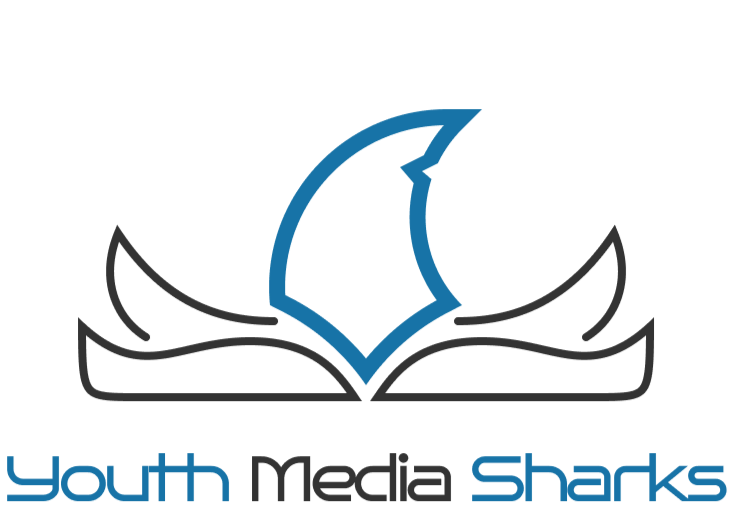Youth Media Sharks:
Media Literacy Upskilling
Media and digital literacy and critical thinking skills for young people

Our project is designed by young people for young people. It’s aimed at promoting media literacy and
critical thinking among youth so that they could navigate the informational world safely, counteract
fakes and become active and responsible part of their community.
critical thinking among youth so that they could navigate the informational world safely, counteract
fakes and become active and responsible part of their community.
Project results
Visit the “Project results” to find the materials our groups created for young people to raise
awareness about media literacy and critical thinking.
Visit the “Project results” to find the materials our groups created for young people to raise
awareness about media literacy and critical thinking.
Partners:
 Madeira, Portugal
Madeira, Portugal Sumy, Ukraine
Sumy, Ukraine
PROJECT
“Youth Media Sharks:
Media Literacy Upskilling”
Media Literacy Upskilling”
Our project is designed by young people for young people. It’s aimed at promoting media literacy and
critical thinking among youth so that they could navigate the informational world safely, counteract
fakes and become active and responsible part of their community.
critical thinking among youth so that they could navigate the informational world safely, counteract
fakes and become active and responsible part of their community.
What are our objectives?
- To develop young people’s media literacy, resilience to disinformation, fake news, and propaganda;
- To develop critical thinking of young people and their ability to assess and work with information through conducting the analysis of the local media and social networks;
- To develop young people’s digital competencies through developing and implementing digital online activities;
- To increase the capacity of young people to participate in democratic life through designing and implementing community actions and getting involved in the dialogue with the local policy stakeholders;
- To build understanding and intercultural dialogue between young people from two different countries and strengthen international cooperation in the youth sphere.

Why this is important?
Fakes and manipulation with information can be found about any public topic. Most recent examples we have seen about the COVID-19 pandemic, vaccination and public health. Now the media battle fields cover the Russian-Ukrainian war, the socio-economic and humanitarian crisis in Europe, the flood of refugees.
It is a powerfully destructive force in this era of global communication when one false idea can spread instantly to many vulnerable ears. Misinformation can not only have negative psychological, social, or political effects but also cost lives.
Young people tend to be the biggest consumers of information through different sources. They
receive a large flow of information from an early age, in particular from the Internet, advertising and television. To consume the truth, they must be able to critically evaluate information, know how to protect themselves from manipulation, what sources can be trusted, what are fakes and why they are created. In short, to have a new skill is to be media literate.
Who is the target group?
The main target group of our project are young people 13—30 years old.
The project is developed by youngsters from Sumy (Ukraine) and Madeira (Portugal).
The project is developed by youngsters from Sumy (Ukraine) and Madeira (Portugal).
What are our activities?
- 1Media Literacy Upskilling local youth eventparallel activities in Portugal and Ukraine
- 2Meetings with stakeholdersparallel activities in Portugal and Ukraine
- 3Online meetings of participantsworking on the common tasks together
- 4Online campaign aiming at promotion of the Media Literacy among youth
- 5International Youth Exchange in Portugal
- 6Development and dissemination of the manual on the Media Literacy for young people and youth workers.
The project is implemented by Associação My Madeira Island and Center for Euroinitiatives with the support of the Erasmus+ programme of the European Union.
ACTIVITIES
FIND OUT HOW TO GET INVOLVED IN OUR ACTIVITIES
Check the posters, stickers and memes about media literacy our team created:
Sign up for our newsletter
Recieve the manual on Media Literacy for young people first!

Center for Euroinitiatives
If you’re coming from Portugal and Ukraine and want to join our activities, please contact the responsible partner


